Have you ever wondered what pound test for surf fishing is proper? Or why it’s even essential to know about it? You’re in luck, as this is precisely the ideal destination for you.
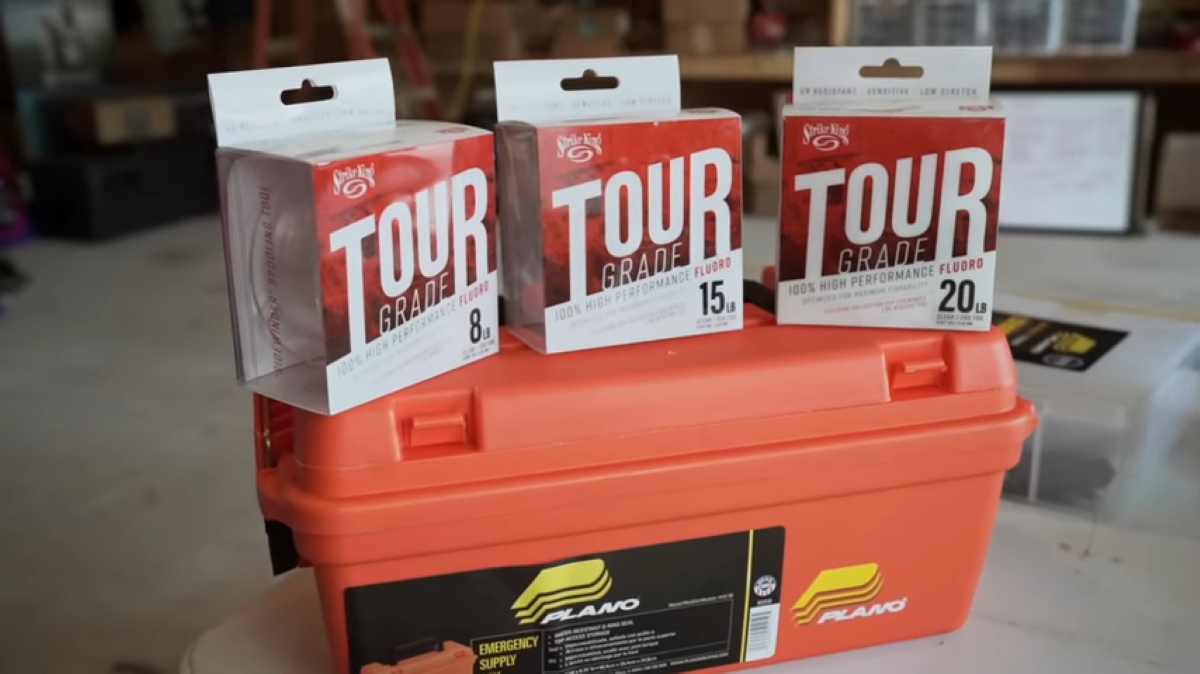
This comprehensive guide aims to answer these burning questions and clarify the concepts behind using different pound tests in surf fishing.
Whether you’re a novice angler or experienced, understanding the importance of choosing the proper pound test for different species, weather conditions, and even the type of reel you’re using can significantly enhance your surf fishing experience. Prepared and eager to embark on this endeavor?
What Is A Pound Test?
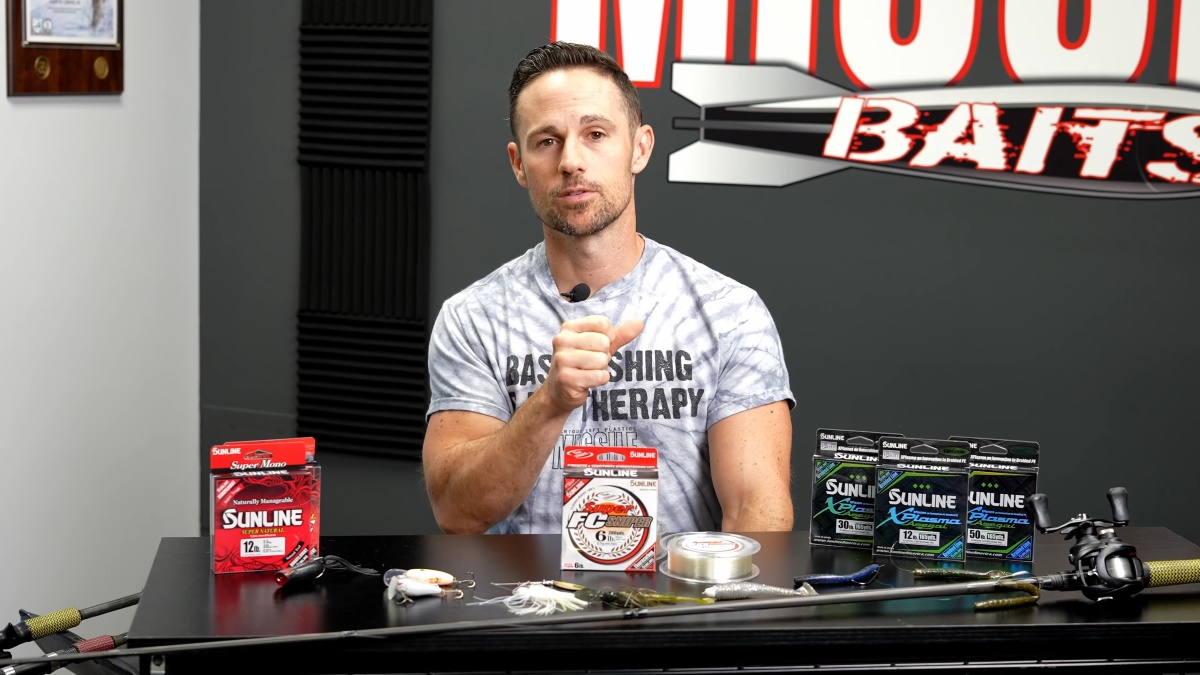
A pound test is a term used to describe the strength of a fishing line. It is a measurement that represents the maximum force or weight a line can bear before it breaks. Pound tests range from 2 lbs to higher values like 4, 6, 8, 10, and 12 lbs. They can even exceed 15 lbs and go up to 50 lbs and beyond.
The proper pound test for surf fishing should be chosen based on the size of the fish being targeted, the casting weight used, and the type of line used.
It is also important to consider the weather and surf conditions as well as your reel and your own experience when deciding which pound test to use.
Selecting the proper pound test to get a successful fishing experience is crucial.
Read more: 10 Best Line For Surf Fishing: Mono, Braid or Fluoro?
What Pound Test For Surf Fishing?
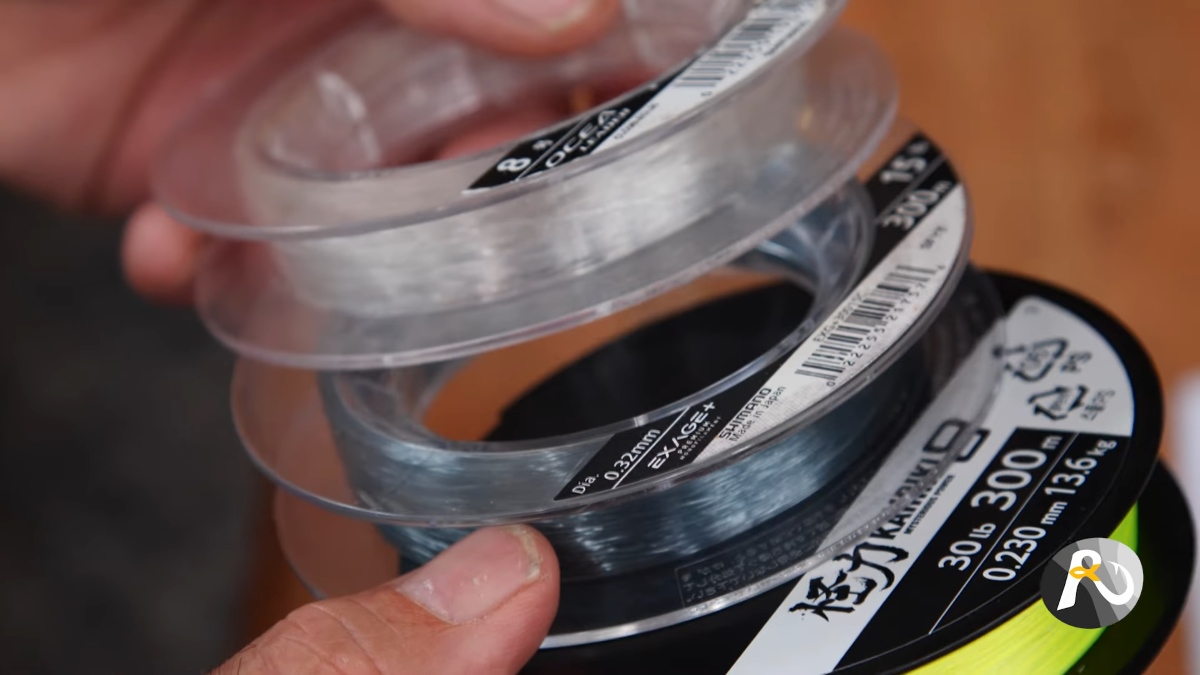
When it comes to what pound test for surf fishing is suitable, the answer depends on a variety of factors, including the targeted species, casting weight, line type, and weather and surf conditions.
For Open Waters
For open waters, pound tests vary from 2 lb for small fish up to 15-20 lb for larger species.
For lighter baits such as shrimp or sand fleas, a 4-6 lb test is typically used, but if you are targeting a bigger game like redfish, then an 8-10 lb line is recommended. If you’re casting heavier baits, such as mullet or bluefish, then a 12-15 lb test is ideal.
Larger species like sharks and tarpon require a 20 lb test or greater.
When uncertain, it is advisable to exercise prudence and opt for a higher-pound test instead of a lower one while navigating open waters.
For Strong Currents Or Windy Weather
When targeting species in strong currents or windy weather, opting for higher-pound tests such as 20 lb and up is essential.
This ensures that your line won’t get snapped by force from the current, which can lead to lost catches and broken lines. A 20 lb test line may not hold up if the wind is too strong.
In this case, it’s best to go for higher pound tests, such as 30-50 lbs or even higher, depending on your target species and the bait type.
However, if there are no strong currents or winds, then lower-pound tests should suffice.
For Rough Grounds
When fishing on rough grounds such as rocks or coral reefs, it’s essential to use a pound test to handle the environment’s wear and tear.
When it comes to lighter baits like shrimp, it’s usually best to go for a lower pound test, around 4-8 lbs. But if you’re dealing with heavier baits like mullet or bluefish, opting for a heavier line, like 10-15 lbs, would be more suitable.
For targeting large game species, a pound test of 20 lbs and up is recommended to withstand the rigors of rough grounds and fierce current conditions.
However, it’s important to note that the appropriate pound test should depend on the targeted species, the size of the bait being used, and the weather and surf conditions.
For Monster Fish
A higher-pound test is required to land the catch successfully when it comes to monster fish such as sharks or tarpon. Pound tests of 20 lb and up are recommended when targeting these species.
Additionally, heavier lines such as 30-50 lbs or higher should also be used depending on the size of bait and type of line being used.
The proper pound test for surf fishing should always depend on the targeted species, weather conditions, and your own experience to ensure a successful catch.
For Small Fish
A lighter pound test should be used when targeting small fish, such as 2-4 lbs. This allows the angler to cast more accurately and efficiently without worrying about overload or line breakage.
It’s also important to consider the type of reel used and whether it suits the chosen pound test.
For example, a spinning reel should not be used with a heavier line, like 12-15 lbs, as it may cause line twists or damage the reel.
It’s always best to opt for lighter lines to catch small fish successfully.
For Medium Fish
When targeting medium-sized fish such as redfish or snapper, an 8-10 lb pound test should be used to ensure a successful catch.
The type of reel and line should also be considered to ensure the chosen pound test is suitable for use with said reel and line.
Heavier lines such as 12-15 lbs can also be used for larger baits, but they should still be checked to ensure they are compatible with the type of reel used.
The proper pound test is essential for a successful and enjoyable fishing experience.
For Large Fish
When targeting larger fish such as tuna or mahi mahi, a heavier-pound test should be used to prevent the line from snapping during the fight for the catch.
Pound tests of 15-20 lbs should suffice, but a 20-30 lb test is recommended if you’re targeting a bigger game.
It’s essential to ensure the chosen pound test is compatible with your reel and line to maximize your chances of success.
The type of bait being used should also be considered when selecting a suitable pound test for large fish.
For Novice Anglers
Choosing the proper pound test can be intimidating for novice anglers. But hey, here’s the thing: the right pound test you need totally depends on what species you’re after and the size of those baits you’re using. Keep that in mind!.
Generally speaking, lighter lines such as 4-6 lbs should suffice for small fish, and 8-10 lbs should be used for medium-sized species. A heavier line of 15-20 pounds is recommended if you’re targeting a larger game.
It’s important to consider the weather conditions, too, when selecting a pound test to ensure your line won’t break due to strong currents or winds.
For Expert Anglers
For expert anglers, choosing the proper pound test is crucial to land their catch successfully.
When targeting large games such as sharks or tuna, a 20 lb test and up should be used to withstand the rigors of rough waters and strong currents. Heavier lines such as 30-50 lbs or higher should also be considered depending on the bait size and type of line.
Furthermore, it is crucial to bear in mind that the pound test will also be contingent upon weather conditions. Being well-prepared for unexpected situations is of utmost importance.
Pound Test for Surf Fishing: A Comparative Analysis
| Factor/Scenario | Recommended Pound Test | Notes |
|---|---|---|
| Open Waters | 2 lb – 20+ lb | – 2 lb for small fish.
– 4-6 lb for light baits like shrimp/sand fleas. – 8-10 lb for redfish. – 12-15 lb for heavier baits like mullet/bluefish. – 20+ lb for sharks/tarpon. |
| Strong Currents/Windy Weather | 20 lb – 50+ lb | – At least 20 lb is necessary in strong currents.
– 30-50 lb or more if wind is very strong or for larger species. |
| Rough Grounds | 4 lb – 20+ lb | – 4-8 lb for light baits.
– 10-15 lb for heavier baits. – 20+ lb for large species in challenging conditions. |
| Monster Fish | 20+ lb | For species like sharks and tarpon. Depending on bait and line, consider 30-50+ lbs. |
| Small Fish | 2-4 lb | Best with lighter reels. Avoid using with heavier lines that can overload or cause damage. |
| Medium Fish | 8-10 lb | Suitable for fish like redfish or snapper. Ensure line compatibility with reel. |
| Large Fish | 15-30 lb | – 15-20 lb for general large fish.
– 20-30 lb when targeting bigger games. |
| Novice Anglers | 4-20 lb | – 4-6 lb for small fish.
– 8-10 lb for medium-sized fish. – 15-20 lb for larger fish, accounting for weather. |
| Expert Anglers | 20-50+ lb | – 20+ lb for large games.
– 30-50+ lb based on bait and line type, also factoring in weather and surf conditions. |
Summary:
The proper pound test for surf fishing depends largely on the targeted species, the environment, bait size, and the angler’s experience. The table above provides a concise overview for selecting the appropriate pound test for different fishing scenarios. Always consider the specifics of the situation and choose a pound test that maximizes the chances of a successful and enjoyable fishing experience.
May you like: 10 Best Surf Fishing Lures, Baits, Surf Jigs & Plugs.
What Size Braid For Surf Fishing?
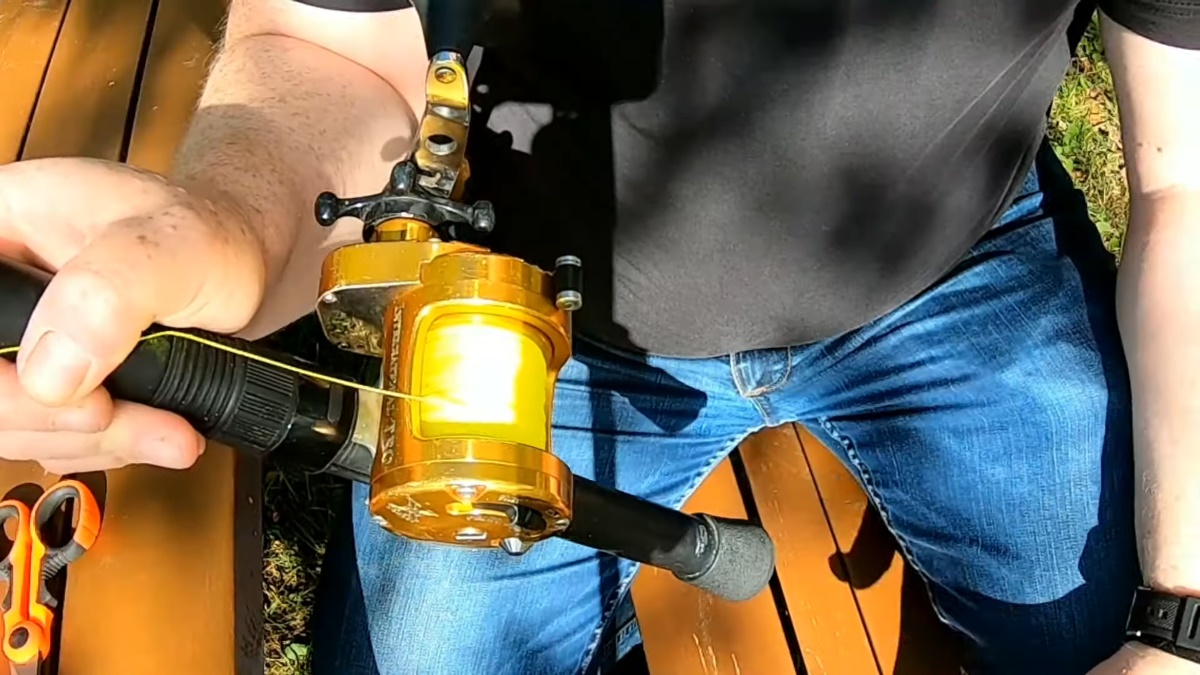
Regarding surf fishing, the type of line used is just as important as the pound test chosen. Braid lines are popular amongst anglers due to their durability and ability to cast further than other types of lines.
The braid size will depend on the type of reel and targeted species, but typically sizes ranging from 10-50 lbs are used for surf fishing.
Smaller braids, such as 8 lb or less, should be avoided when targeting large games, as they might not be able to withstand the rigors of rough waters and strong currents.
What is Line Weight For Surf Fishing?

Regarding surf fishing, the line weight chosen will depend on the targeted species and the size of the bait.
Generally, lighter pound tests are used for small fish, while heavier lines should be used for larger games.
A solid rule of thumb would be to kick off with an 8-10 lb test line and go from there based on the size of bait and weather conditions.
What Determines The Pound Test You Use While Surf Fishing?
The pound test used when surf fishing is determined by a few factors, such as:
The Targeted Species
The targeted species will determine the pound test used while surf fishing. Generally, lighter lines are suitable for small fish, while heavier lines of 15-20 lbs or higher should be used for larger game.
Conducting thorough research to determine the optimal fishing line for your target species is paramount, as it significantly enhances your prospects of achieving favorable outcomes.
Your Casting Weight
The size of your casting weight will also determine the pound test that should be used while surf fishing.
Selecting the appropriate line that is compatible with your reel is crucial for optimal performance when using heavier weights. This ensures optimal utilization of equipment to attain optimal results.
Lighter lines are suitable for small weights, while heavier lines should be used with larger casting weights.
Your Line Types and Reel
The type of line used and the reel should also be considered when selecting a suitable pound test for surf fishing.
Ensuring compatibility between your chosen line and reel is crucial for optimizing equipment performance.
Additionally, different line types, such as mono-filament or braid, will require different pound tests to maximize your chances of success.
May you like: Best Surf Fishing Reels For The Money, Reviews 2023
The Weather And Surf Conditions
The weather and surf conditions should also be considered when selecting a suitable pound test for surf fishing. Windier days will require heavier lines, while calmer days can accommodate lighter lines.
Prior to departure, it is advisable to pause briefly and assess your surroundings. It’s essential to consider the conditions to ensure your line stays intact.
Your Experience Level
Your experience level should also be considered when selecting a suitable pound test for surf fishing.
Beginners can start with lighter lines, such as 4-6 lbs, while more experienced anglers may opt for heavier lines of 15-20 lbs or higher, depending on the targeted species and bait size.
How Does Pound Test For Surf Fishing Relate To Rods And Reels?
The pound test for surf fishing should match the rod and reel used. Heavier rods will require heavier lines to ensure that your catch won’t break due to rough waters and strong currents.
Lighter rods can usually accommodate lighter lines such as 4-6 lbs, although more experienced anglers may opt for heavier pound tests depending on their targeted species and the bait size.
Read more: Best Rod And Reel Combo For Surf Fishing.
Some Common Pound Tests Used In Beach Casting
Some common pound tests used in beach casting include:
- 8 lbs for a small bait and light tackle.
- 12 lbs for casting lures and larger baits.
- 15 lbs for targeting large games, such as roosterfish.
- 20 lbs for a bigger game, including jacks and sea bass.
It’s important to research and understand what type of line weight is best suited for the size of bait and targeted species to maximize your chances of success.
Tips On Selecting The Appropriate Pound Test For Your Catch
These are some tips on selecting the appropriate pound test for your catch:
- Research the targeted species and size of bait before fishing.
- Match your line weight with your casting weight and rod/reel type.
- Consider the weather and surf conditions before casting out.
- Start with an 8-10 lb test and increase/decrease the weight based on your needs.
By adhering to these recommendations, you can guarantee the integrity of your line against formidable currents or winds, thereby optimizing your likelihood of achieving success.
Strategies To Help You Master Surf Fishing With The Right Pound Test
These are some strategies to help you master surf fishing with the proper pound test:
- Research the targeted species and size of bait before fishing.
- Analyze your reel and line type to make sure that they are compatible.
- Take into account the weather and surf conditions before casting out.
- Start with an 8-10 lb test and adjust the weight according to your needs.
- Familiarize yourself with the rod and reel, as well as different types of line weights.
- Practice casting in a safe environment, such as on land or in shallow water.
- Try techniques such as long casts, short casts, or bottom fishing.
- Invest in quality equipment and lures to benefit from maximum performance.
By following these tips, you can become a master at surf fishing with the proper knowledge and equipment.
FAQs about What Pound Test for Surf Fishing
Q: Why not use a higher or lower pound test for surf fishing?
A: It is crucial to select a pound test compatible with your reel and rod type and the size of bait and targeted species. Selection of an appropriate weight is crucial to prevent line breakage from strong currents or winds. It is recommended to match the weight to your specific requirements, ensuring preparedness for any eventualities while navigating on the water.
Q: What pound test should you use for saltwater shore fishing?
A: The pound test used for saltwater shore fishing will depend on the size of the bait and targeted species. Typically, lighter lines within the 4-6 lbs range are optimal for smaller baits, whereas heavier lines ranging from 15-20 lbs are better suited for larger game. Researching and understanding what type of line weight is best suited for your needs before heading out to ensure your line won’t break due to strong currents or winds is essential.
Q: Why is it important to know about pound tests for surf fishing?
A: Understanding the pound test that suits your needs is essential to ensure you are appropriately prepared for the water. With the proper knowledge and equipment, you can ensure your line won’t break due to strong currents or winds and maximize your chances of success. Matching the pound test with your reel and rod type is essential to ensure a comfortable and enjoyable experience out on the water.
Q: What are the different types of pound tests for surf fishing gear?
A: Different pound tests for surf fishing gear range from 4-6 lbs to 15-20 lbs depending on the bait size and targeted species. For smaller baits such as mackerel, it’s best to start with an 8 or 10-lb test, while larger games such as jacks can require a heavier-pound test. Researching and understanding what type of line weight best suits your needs before heading out to ensure you are properly prepared is important.
Q: How to properly set up a surf fishing rig with a pound test?
A: Setting up a surf fishing rig with the appropriate pound test can be done by following these steps:
- Research the targeted species and size of bait before fishing.
- Match your line weight with your casting weight and rod/reel type.
- Consider the weather and surf conditions before casting out.
- Start with an 8-10 lb test and increase/decrease the weight based on your needs.
- Attach the line to the reel, and ensure it’s properly tensioned and secured.
- Tie a swivel or leader with a hook onto the end of the line.
Following these steps ensures that the rig is appropriately set up and that your line won’t break due to strong currents or winds.
Q: What are some common mistakes to avoid when using pound tests for surf fishing?
A: A few common mistakes to avoid when using pound tests for surf fishing. Firstly, it’s essential to match the line weight with your casting weight and rod/reel type and consider the weather and surf conditions before casting out. Additionally, never use a heavier test than recommended for a specific species or bait size, as this can lead to breakages in the line. Lastly, always use quality equipment and lures to benefit from maximum performance and ensure your line won’t break due to strong currents or winds.
Conclusion
What pound test for surf fishing is suitable depends on the size of bait, targeted species, and weather/surf conditions. Researching and understanding what type of line weight is best suited for your needs is essential before heading out to maximize your chances of success.
In addition, it is crucial to prioritize the use of top-notch equipment and lures, while also honing casting skills in a safe environment, such as on land or in shallow waters.
By to these guidelines, you can guarantee the integrity of your line amidst challenging currents or gusts of wind and experience a pleasant time on the water.
Happy fishing!
source https://bassfishingarchives.com/what-pound-test-for-surf-fishing/ by Clay Dyer
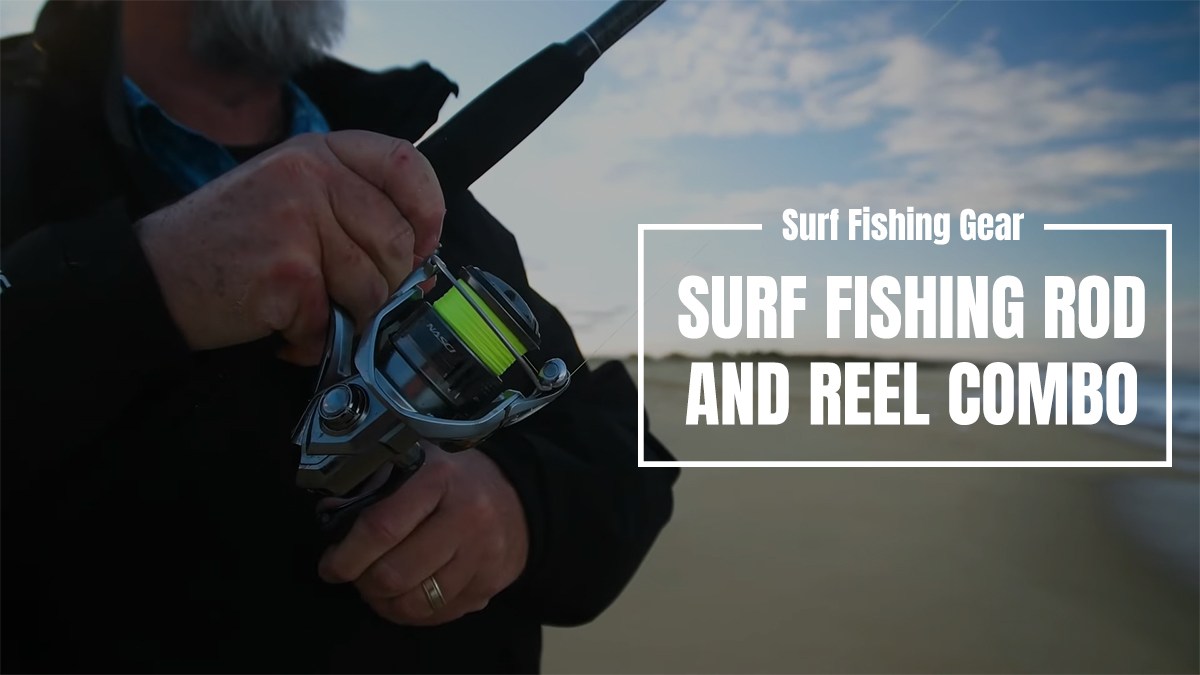
No comments:
Post a Comment